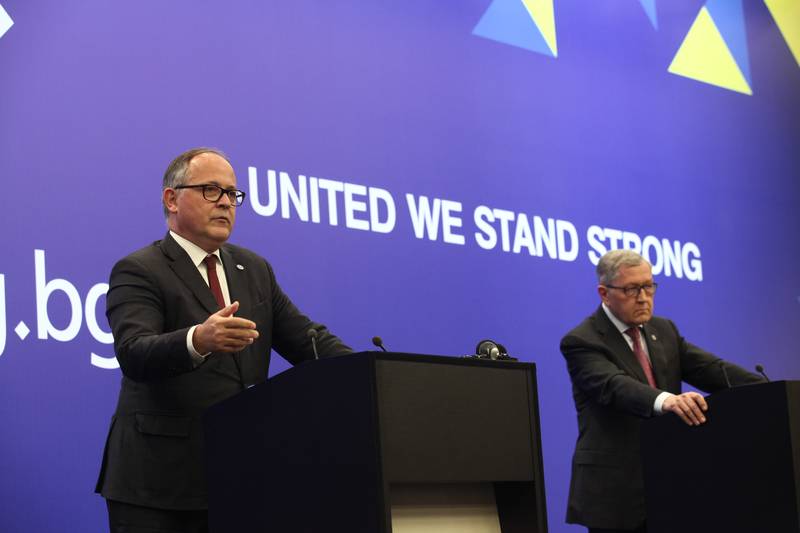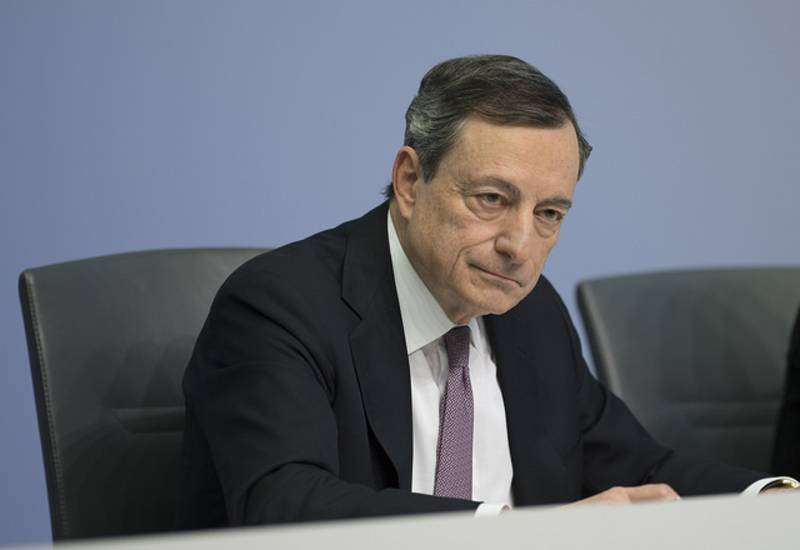A Lukewarm Welcome for Greece's Growth Strategy
Adelina Marini, May 3, 2018
 By June 21st, the euro area must be ready with a plan for Greece's exit from the third and last bailout programme, which will officially happen in August. However, the most important elements of this plan are still missing. Those are the Greek government's growth strategy for the post-programme period and a safeguard mechanism. On April 27th, Greek Finance Minister Euclid Tsakalotos presented for the first time to his colleagues in the Eurogroup a draft of the long-awaited strategy for development of the Greek economy. This happened during the informal meeting of euro area finance ministers in Sofia.
By June 21st, the euro area must be ready with a plan for Greece's exit from the third and last bailout programme, which will officially happen in August. However, the most important elements of this plan are still missing. Those are the Greek government's growth strategy for the post-programme period and a safeguard mechanism. On April 27th, Greek Finance Minister Euclid Tsakalotos presented for the first time to his colleagues in the Eurogroup a draft of the long-awaited strategy for development of the Greek economy. This happened during the informal meeting of euro area finance ministers in Sofia.
According to Bloomberg, who had a look at the draft, the Greek government plans to restore collective bargaining on the labour market, to gradually increase minimum wage and to establish a development bank. The strategy also commits to create a land register, to accelerate judicial procedures, reduce administrative burden, enhance private sector investments in R&D. The document is crucial for Greece's post-programme development because it will define whether the country will be able to stand on its own feet, without the crutch of the European bailout fund, and whether it will be able to pay its creditors back to the very last cent.
The first reactions after Mr Tsakalotos's presentation in Sofia were rather lukewarm. Eurogroup chief Mario Centeno, whose country (Portugal) went through a similar process under his leadership when he was finance minister, stressed that the most important thing is the strategy to boost long-term growth potential of the Greek economy and to strengthen investment climate. "On the back of our experience in other programme countries, namely in the country I know best, ownership is critical for the sustainability of the current economic recovery in Greece", Mr Centeno said.
Economic affairs Commissioner Pierre Moscovici (France, S&D), who has always praised the Greek government's efforts, was cautious on Friday. According to him, the strategy needs further clarification to strengthen confidence. But, still, Athens is on the right track, he said. "We listened with great interest to Euclid's presentation of the growth strategy drawn up by the Greek government. The main aspects are encompassed, the main reforms to be pursued after the end of the programme in order to enhance productivity, to improve the business environment, to improve financing conditions", the commissioner specified. He said that the other ministers had a positive view of the strategy.
Benoit Coeure, member of the ECB Executive Board (France), urged the strategy to be as stronger as possible because, as of August 21st onward, Greece will no longer communicate with the institutions and the Eurogroup but with the capital markets, "which is a quite different discussion", he stressed. The growth strategy is part of the efforts to build confidence, which is why it is important to be as stronger as possible.
The other important element of Greece's bailout exit is a surveillance mechanism which, however, is not yet ready. The Eurogroup took note of the Commission proposal but talks are yet to begin. Pierre Moscovici stressed that the future mechanism should not and will not resemble a new programme or an extension of the present one. And most importantly, it must be ready by 21 June which, the commissioner said, there is political will for. By then, the fourth and final programme review has to be completed. In Mr Moscovici's words, 90% of the job is done but the remaining percentages are not the easiest, he admitted.
He did not name them but his fellow countryman Benoit Coeure mentioned those which are crucial for the ECB. Those are household insolvency, electronic auctions, NPLs. In addition, time is coming to talk about an issue nobody wants to talk about, namely what to do with the Greek debt after the exit. According to the 2016 agreement, additional relief measures will be discussed only if necessary after the end of the programme. ECB believes that any debt measures should be front-loaded and be as  automatic as possible and less conditional to help contribute to building confidence between Greece and the capital markets.
automatic as possible and less conditional to help contribute to building confidence between Greece and the capital markets.
The boss of the European Stability Mechanism (ESM) - the euro area's permanent bailout fund - Klaus Regling (Germany) said he expected Greece to pay back everything. So far, Greece has been paid 187 billion euros, which is roughly 100% of the Greek gross domestic product. This makes the ESM the largest creditor for Athens. "So, it’s in our interest that Greece gets on a good growth path again, because that’s the best reassurance that we will be repaid one day. We are very patient with our repayments, but we want to be repaid one day", he said welcoming the growth strategy. The ESM will disburse to Greece one last and big tranche after the end of the fourth programme review which will serve as a buffer for its exit.
The buffer will help Greece restore its full access to the markets and will cover a period longer than 12 months. Mario Centeno recalled that the Portuguese buffer covered a period of around 18 months. On May 14th, representatives of the institutions will return to Athens to complete the fourth review.
 Klaus Regling | © Council of the EU
Klaus Regling | © Council of the EU Mario Centeno | © Council of the EU
Mario Centeno | © Council of the EU Mario Draghi | © ECB
Mario Draghi | © ECB